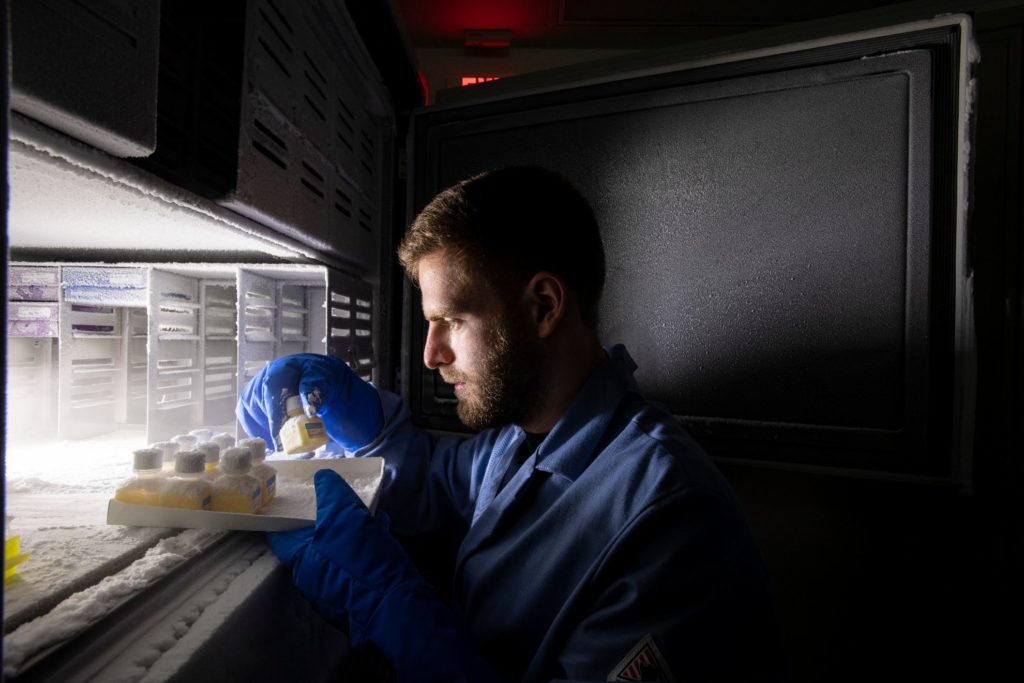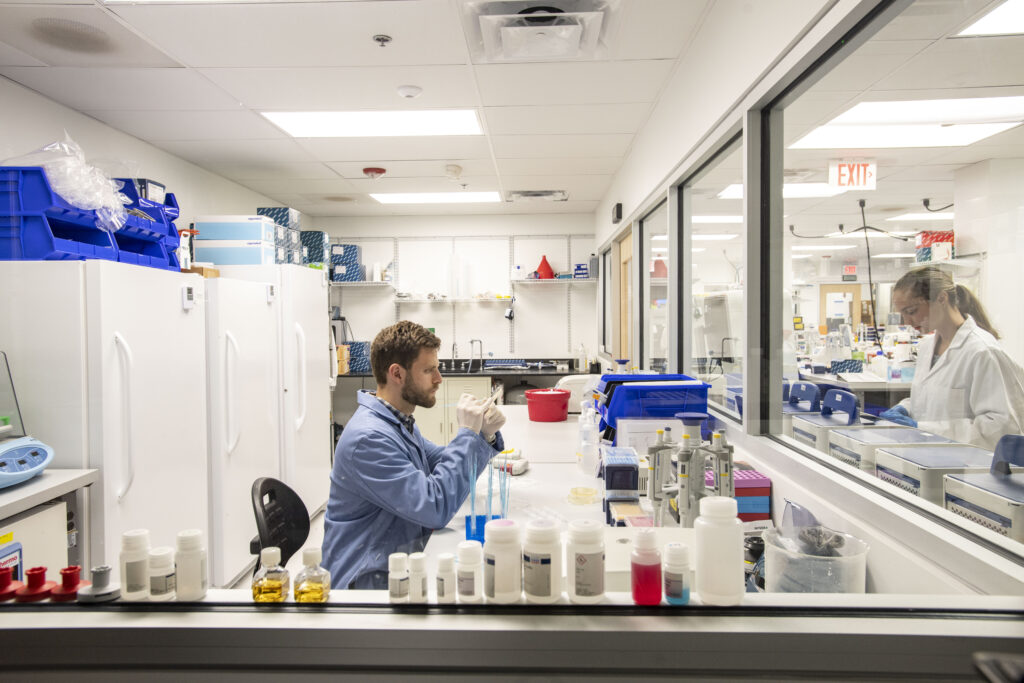
Realizing Achievement and Direction through His Research
Franklin Kostas joined one of Factor Bioscience’s spinoffs, Novellus Therapeutics, as an Associate Scientist after graduating with a Bachelor of Science degree in chemistry from Haverford College in 2018. Many from his graduating class went straight into graduate school or took technician positions in university labs, but Franklin decided to work in industry before pursuing his Ph.D
“Even though I loved chemistry, I didn’t want to jump right into five to seven more years of school,” Franklin said. “What drew me to this particular job was the small, tight-knit team. They had me present my research, and they were engaged with it. It was just clear that they were very, very smart and also warm and receptive. And it felt like a group of people that I would fit in with,” he stated. Franklin described leaving the interview, deciding that if he were offered the job, he would take it no matter what. He was thrilled when he received the offer letter. He accepted the job immediately and moved to Cambridge.
A Promising Scientist Given Freedom and Responsibility
Initially, Dr. Matt Angel, CEO and Co-Founder of Factor Bioscience and Co-Founder of Novellus Therapeutics, and Dr. Christopher Rohde, Chief Technology Officer and Co-Founder of Factor Bioscience and Co-Founder of Novellus Therapeutics, presented Franklin with the challenge of developing a formulation to deliver mRNA to cells in vivo. Dr. Angel worked closely with Franklin as he designed his research strategy. Franklin described his early days at the company as almost entirely self-directed. “Matt and Chris have a very hands-off management style, which I have come to prefer,” he said. “They were happy to provide assistance and talk things through with me, but I was also given a lot of freedom and responsibility to find some of the directions that we were going to take.”
Franklin described long hard months spent trying to find a solution after finding that many of the molecules he was working with were inhibited by serum. And he took note of Dr. Angel and Dr. Rohde’s approach to research when things weren’t going as planned. “I learned something from them. When things don’t work right, Matt and Chris have this incredible capability to redouble their efforts and keep trying,” he stated. “It’s counterintuitive. You want to pull back if you’re not getting good results out of your work. At that point, you don’t want to put hard work in, but Matt and Chris actually will increase their efforts,” he said. “That’s something that I’ve tried to apply to other parts of my life.”

A Discovery at the Interface of Chemistry and Biology
Franklin designed and executed many rounds of experiments using both panels of lipid and polymer-based reagents that he selected for this purpose as well as molecules that he designed and synthesized himself. His results led him to develop a family of novel chemical substances, including a group of ionizable fusogenic lipids, which he synthesized for the first time in the company’s lab. Through in vitro and in vivo experiments, Franklin discovered that his new lipids allowed superior mRNA delivery to cells, including delivery of gene-editing mRNA and mRNA encoding COVID-19 antigens.
Franklin’s discovery has so far resulted in four granted U.S. patents, a presentation at the American Society of Gene & Cell Therapy 2020 Annual Meeting, and a sponsored research collaboration with the National University of Ireland, Galway. More recently, Franklin’s work has yielded two multimillion-dollar contracts under which Factor’s partners will use Franklin’s lipids to develop new therapies for the treatment of various genetic diseases and cancers.
“In addition to his work on mRNA delivery, Franklin has made meaningful contributions to many other areas of our company, including the development of gene-editing proteins comprising novel DNA-binding domains,” said Dr. Angel. “Franklin is an incredibly talented scientist, and his achievements clearly reflect his extraordinary aptitude for independent research.”
A Solid Foundation for a Career in Science
“I spent five months banging my head against the wall, trying a million things that didn’t work at all,” said Franklin. “So, to have this actually work was really, really great, and it was very encouraging. My experience at Factor has helped put me on the track toward science. And it feels like something that I could do for a career.”
When asked what he would advise someone considering science as a career, he replied, “For someone who is in college and contemplating a career in scientific research, I would definitely recommend taking some time to work in industry. For me, it’s been beneficial in terms of finding a direction and understanding the type of science that I want to do. You know, I once thought I wanted to be a doctor. And then I discovered science, and moved away from medicine. But my time at Factor has helped me understand that I want to do something much closer to therapeutic development, much more directed towards solving a problem.”
Franklin leaves Factor to begin his Ph.D. program at the Massachusetts Institute of Technology’s Department of Chemistry in the fall.